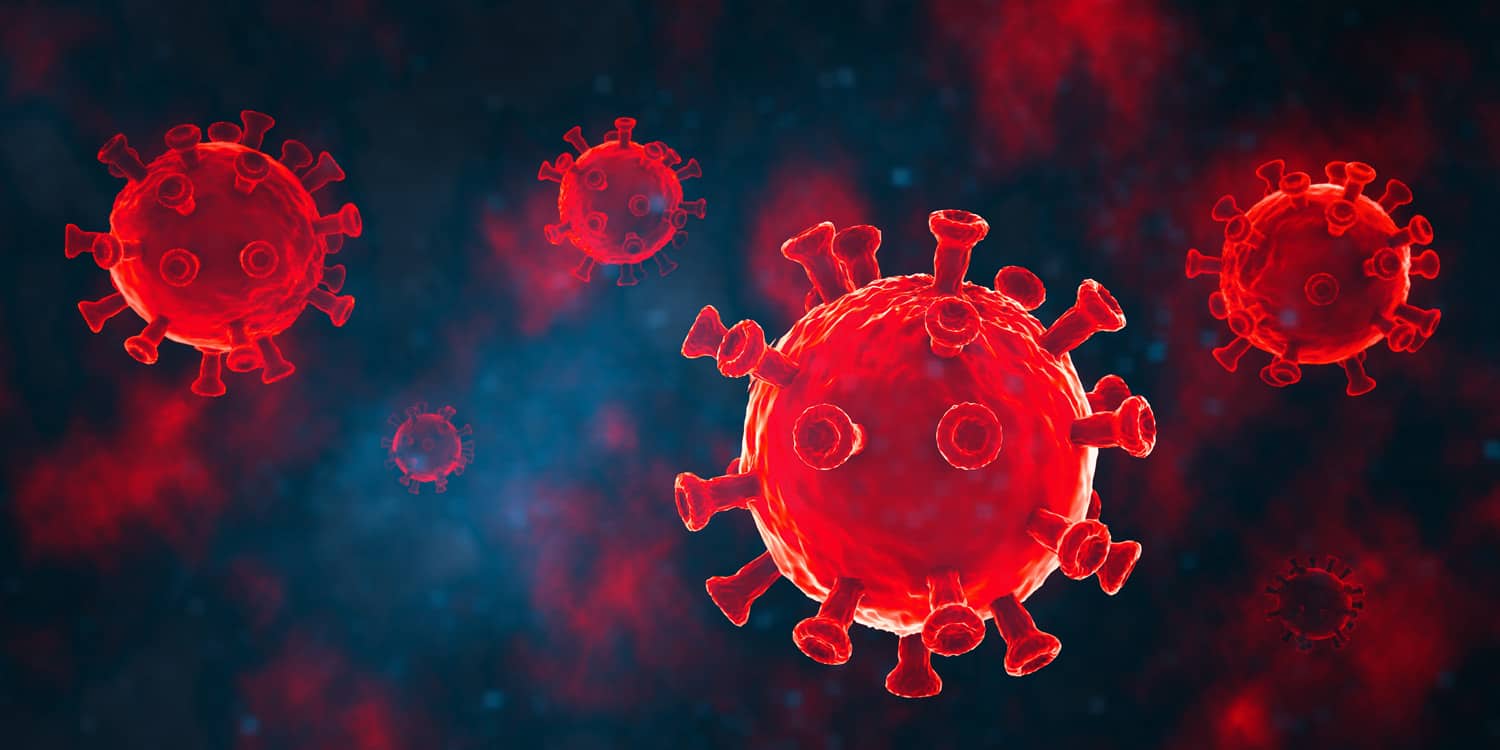A neuroimaging study in Serbia found that individuals who survived a more severe COVID-19 infection had lower levels of creatine and N-acetylaspartate levels in several regions of the brain. The ratio of choline and creatine levels was heightened in survivors of more severe COVID-19 infections. The research, published in the Journal of Clinical Medicine, sheds light on the potential long-term neurological impacts of severe COVID-19 infections, highlighting changes in brain metabolism that could contribute to cognitive and neurological symptoms observed in patients post-recovery.
COVID-19 is an infectious disease caused by the coronavirus SARS-CoV-2. This infection in humans emerged in late 2019 and quickly spread around the world, causing a global pandemic. While many individuals experienced a COVID-19 infection with few or almost no symptoms, the infection proved deadly for many others. Estimates indicate that it infected over 700 million people worldwide, killing around 7 million during the 2020-2022 pandemic.
Symptoms of COVID-19 range from mild to severe and life-threatening. They can include fever, cough, difficulty breathing, fatigue, and loss of taste or smell. Aftereffects, often referred to as “long COVID,” can include lingering fatigue, respiratory issues, cognitive impairments, and other health problems. Studies have indicated that the virus responsible for the infection invades many different organs, including the nervous system. In many cases, individuals recovering from COVID-19 developed various neurological and psychiatric symptoms.
Study author Jelena Ostojić and her colleagues wanted to investigate whether COVID-19 affects specific brain metabolism markers and whether the severity of the COVID-19 infection is associated with this effect. They focused on the subcortical white matter, anterior cingulate cortex, deep frontal white matter, and posterior cingulate cortex regions of the brain, applying magnetic resonance spectroscopy.
Magnetic resonance spectroscopy is a non-invasive diagnostic technique that uses magnetic fields and radio waves to measure the concentration of specific chemicals, or metabolites, within tissues, providing detailed information about their biochemical composition. The authors of this study focused on levels of brain metabolites N-acetylaspartate, choline, and creatine, and their relative concentrations.
N-acetylaspartate is a marker of neuronal health and function, with decreased levels indicating neuronal loss or dysfunction. Elevated choline can indicate increased cell membrane turnover or malignancy. Creatine levels are typically stable and serve as a reference for other metabolites.
Study participants were 81 individuals who recovered from COVID-19 6-12 months before the study. Forty-one of these participants were female, and their ages ranged between 40 and 60 years. These individuals reported various neurological or neurocognitive symptoms associated with acute COVID-19 infection, such as headaches, dizziness, disorders of smell or taste, forgetfulness, and issues with concentration and attention. These individuals underwent magnetic resonance imaging and spectroscopy.
The study authors divided participants into three groups depending on the severity of COVID-19 symptoms they experienced during the infection. The mild group consisted of outpatients with milder symptoms who experienced at least one COVID-19 symptom during the acute phase but did not need supplemental oxygen.
The moderate group included hospitalized patients with moderate to severe symptoms who required standard oxygen support during the acute phase. The severe group was made up of hospitalized patients with severe symptoms, necessitating more intensive oxygen support, such as high-flow nasal cannula (HFNC) therapy, non-invasive and invasive mechanical ventilation, or extracorporeal membrane oxygenation (ECMO).
Results showed that levels of N-acetylaspartate and creatinine were lower in all studied regions of the brain in individuals who went through a more severe COVID-19 infection compared to participants who only had a mild form of COVID-19. Ratios of choline to creatine concentrations were increased.
“Both in grey and white matter, the decrease in NAA [N-acetylaspartate] suggests the neuronal loss and/or dysfunction following direct neuronal injury caused by virus per se or indirect neuronal loss caused by the neuroinflammatory processes triggered by systemic inflammation. One of the most interesting findings is the instability of Cr [creatine], with detected decrease reflecting the severity of the clinical condition possibly indicating an increased risk of neurological complications such as dementia following severe COVID-19 infection,” the study authors concluded.
“Finally, we observed relatively stable or even decreasing Cho [choline] in the more severe clinical presentations potentially speaking in favor of neuroplasticity in observed voxels [areas of the brain]. The alterations in brain metabolites observed in our study may be attributed to a combination of direct viral effects, systemic inflammation, oxidative stress, mitochondrial dysfunction, and hypoxia.”
The study sheds light on the likely aftereffects of COVID-19 infections on neural health. However, it should be noted that the study authors did not have participants’ data from before COVID-19. Therefore, it remains unknown whether these brain metabolism alterations developed as a consequence of the infection or if these individuals had altered brain metabolism even before that.
The paper, “Decreased Cerebral Creatine and N-Acetyl Aspartate Concentrations after Severe COVID-19 Infection: A Magnetic Resonance Spectroscopy Study,” was authored by Jelena Ostojić, Dusko Kozić, Sergej Ostojić, Aleksandra DJ Ilić, Vladimir Galic, Jovan Matijašević, Dušan Dragićević, Otto Barak, and Jasmina Boban.




